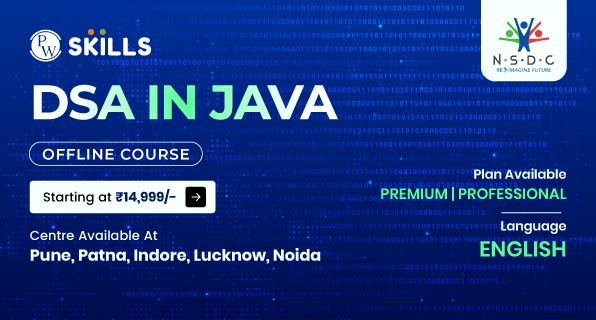Core Focus: Computer science is all about diving deep into the inner workings of software and computer coding languages. It explores how software functions and how computer programs are built.
Career Paths: A degree in computer science typically opens doors to careers in IT (information technology) or software engineering. Computer scientists are the architects behind software systems, designing, developing, and maintaining them.
Data Science vs Computer Science
Core Focus: Data science is more concerned with handling and analyzing large volumes of data. Data scientists use coding languages to process and extract insights from data. However, they are less focused on all possible details of software development.
Career Paths: Data scientists are like data detectives. They specialize in creating algorithms that can uncover hidden patterns in data and make predictions about future trends or outcomes. Careers in data science can be found in various industries where data-driven decision-making is crucial.
While computer science and data science involve coding languages, they diverge in their primary objectives. Computer science delves into software development and coding intricacies, while data science revolves around extracting meaningful insights from data using algorithms. Your choice between the two fields depends on your passion and career goals, whether you want to build software systems or unlock the secrets hidden within data.
Embarking on a career in the tech realm is an exciting journey, but choosing between data science vs computer science is a significant crossroads. While both fields share a common foundation in technology, they each require distinct skills and expertise.
Beginning a Career in Data Science
If you’re inclined towards data science, here’s how to start your journey:
Identify Your Passion: Data science demands a unique affinity for working with data and a penchant for problem-solving. Recognize your knack for exploring data-driven insights.
Educational Foundation: Opt for a data science program that offers a comprehensive curriculum. Your Bachelor’s degree should include subjects like linear algebra, statistics, and calculus, providing the necessary mathematical foundation for data analysis.
Technical Proficiency: Data science isn’t just about theory; it’s hands-on. You’ll need proficiency in various tools and environments. This typically includes SQL for data querying, coding languages like Python or R, familiarity with command line operations, and understanding cloud technology.
Data Processing Skills: By the end of your education, you should be adept at handling complex datasets using your technical knowledge. This involves data cleaning, transformation, and analysis.
Practical Application: Real-world experience is invaluable. Begin your career journey at smaller companies, where you can swiftly apply your theoretical knowledge. On-the-job training will allow you to put your skills into practice efficiently.
Career Advancement: As you gain experience, your data science career will flourish. Building practical expertise enhances your earning potential and broadens your scope of knowledge and expertise.
Data science is a field where a deep understanding of mathematics and technical skills converge to unravel insights hidden in data. It’s a dynamic and rewarding career choice for those passionate about working with data.
How to Begin a Career in Computer Science
On the other hand, if computer science is your calling, follow these steps:
Educational Foundation: Pursue a bachelor’s degree in computer science or a related field. Your coursework will cover programming languages, algorithms, data structures, and software development principles.
Programming Proficiency: Master programming languages such as Java, C++, or Python, as they are fundamental to computer science. Understanding coding principles and logic is essential.
Project Development: Gain practical experience by working on coding projects. Create software applications, websites, or games to apply your coding skills and enhance your portfolio.
Problem-Solving Skills: Computer science is about solving complex problems. Sharpen your analytical and critical-thinking abilities to tackle challenging programming tasks.
Internships and Networking: Seek internships or co-op opportunities to gain industry exposure. Networking with professionals and joining tech communities can open doors to job prospects.
Continuous Learning: Technology evolves rapidly. Stay updated with the latest trends and innovations in the field through courses, workshops, and self-study.
Computer science is a vast domain encompassing software development, algorithms, and problem-solving. It offers various career options, from software engineering to cybersecurity and beyond.
By now, you should have a solid grasp of the distinctions between data science and computer science. Data science is a specialized field within the realm of computer studies, focusing on programming, analytics, and statistics. On the other hand, computer science revolves around constructing hardware and creating software.
Both career paths offer substantial rewards, but the demand for data scientists is surging ahead of the need for computer scientists. The vast amounts of data being generated worldwide and businesses’ increasing requirement for individuals to handle and analyze this data mean that skilled data scientists can quickly secure lucrative job opportunities
Frequently Asked Questions
Q1. What is better in the field of computer science or data science?
Ans. Computer science is recommended, but when looking for a way to develop new things, it’s beneficial to do data analysis or research and draw conclusions from the available information.
Q2. What is the challenge of data science vs computer science?
Ans. If you are familiar with both, it is relatively easy to choose between the two fields of data science and computer science. Data science is appropriate for those who want to work with figures and statistics. As a data scientist, you’ll have to collect and analyze a lot of data.
Q3. Should I pursue an MS in CS or an MS in Data Science?
Ans. It depends on the courses and skills a student prefers. CS covers virtualization and systems, while data science is more specialized and offers more courses in statistics.


